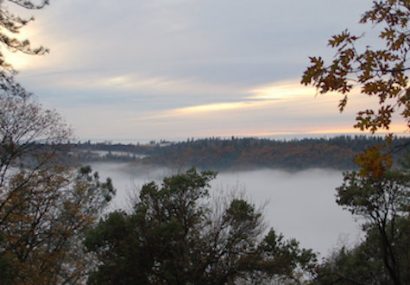
By Chris Carrillo, Esq. and Michael Duane Davis, Esq.
The Westlands Water District (Westlands), one of the largest water districts in California, recently executed a settlement agreement with the California Attorney General that prohibits Westlands from participating in Shasta Dam expansion efforts that could adversely impact the McCloud River, a state-designated Wild and Scenic River.
Background
The prospect of raising Shasta Dam to increase surface water storage capacity for the state’s largest reservoir has been a long-standing controversy. The Shasta Lake Reservoir, which comprises an approximately 400-mile shoreline, supplies farms and cities across the Central Valley. The U.S. Bureau of Reclamation (Bureau), which operates the Shasta Dam, has proposed raising the Dam by 18 feet, which would expand Shasta Lake’s storage capacity by 14 percent and approximately 634,000 acre-feet.
Environmental groups opposing this proposal assert that it would inundate the McCloud River and flood sites considered sacred to the Winnemem Wintu Tribe. A 2015 feasibility study prepared by the U.S. Department of Interior determined that while inundation would occur to a point 3,500 additional feet up river, such inundation would not materially impact lower McCloud River flows into Shasta Lake.
While the federal government has expressed a strong interest in increasing the Shasta Lake’s storage capacity, the Bureau cannot raise Shasta Dam unless local water agencies contribute approximately half of the $1.3 billion project costs. Westlands has demonstrated its interest in raising Shasta Dam, including indicating its willingness to contribute to the project costs. In 2007, Westlands spent $35 million to buy a seven-mile stretch of land along the McCloud River in support of the project.
The Lawsuit and Subsequent Settlement Agreement
The California Attorney General (AG) filed a lawsuit against Westlands earlier this year. The AG alleged, among other claims, violations of the California Public Resources Code § 5093.542, which states that:
. . .no agency of the state shall assist or cooperate with…any agency of the federal, state, or local government in the planning or construction of any dam, reservoir, diversion, or other water impoundment facility that could have an adverse effect on the free-flowing condition of the McCloud River, or on its wild trout fishery.
Westlands conducted environmental review for the Shasta Dam Raise Project pursuant to the California Environmental Quality Act (CEQA), which triggered the filing of the lawsuit. After the AG secured a preliminary injunction in July 2019 preventing Westlands from “taking any action that constitutes planning for or the construction of the Shasta Dam Raise Project, pending trial of this matter” and enjoining Westlands’ CEQA process, Westlands formally withdrew its CEQA Notice of Preparation on September 30, 2019 and entered into a settlement agreement with the AG.
The terms of the settlement agreement include:
•Westlands shall not initiate preparation of an environmental impact report or other environmental review document pursuant to CEQA for a project to raise Shasta Dam;
•Westlands shall not enter into any agreement to fund, directly or indirectly, the raising of Shasta Dam;
•Westlands shall not enter into any other agreement that would assist any agency of the federal, state, or local government in the planning or construction of the raising of Shasta Dam; and
•Westlands shall not acquire additional real property to facilitate the raising of Shasta Dam.
Conclusion and Implications
The U.S. Bureau of Reclamation continues to explore options with other non-federal cost-share partners to implement the Project, which is considered a high priority project for the Trump administration. Westlands is permitted to study whether raising the Dam would impact the McCloud River. Depending on the results of such additional studies, Westlands may decide to re‑engage in formal planning processes, though such a move may risk subsequent litigation. For now, Westlands has formally withdrawn its Project efforts to advance a major California water resources priority—increasing surface water storage capacity.




